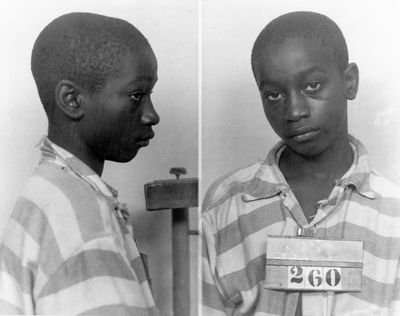Judge tosses conviction of boy executed in South Carolina in 1944

COLUMBIA, S.C. – More than 70 years after South Carolina sent a 14-year-old black boy to the electric chair in the killings of two white girls in a segregated mill town, a judge threw out the conviction, saying the state committed a great injustice.
George Stinney was arrested, convicted of murder in a one-day trial and executed in 1944 – all in the span of about three months and without an appeal. The speed in which the state meted out justice against the youngest person executed in the United States in the 20th century was shocking and extremely unfair, Circuit Judge Carmen Mullen wrote in her ruling Wednesday.
“I can think of no greater injustice,” Mullen wrote.
The girls, ages 7 and 11, were beaten badly in the head with an iron railroad spike in the town of Alcolu in Clarendon County, about 45 miles southeast of Columbia, authorities said. A search by dozens of people found their bodies several hours later.
Investigators arrested Stinney, saying witnesses saw him with the girls as they picked flowers. He was kept away from his parents, and authorities later said he confessed.
His supporters said he was a small, frail boy so scared that he said whatever he thought would make the authorities happy. They said there was no physical evidence linking him to the deaths. His executioners noted the electric chair straps didn’t fit him, and an electrode was too big for his leg.
During a two-day hearing in January, Mullen heard from Stinney’s surviving brother and sisters, someone involved in the search and experts who questioned the autopsy findings and Stinney’s confession.